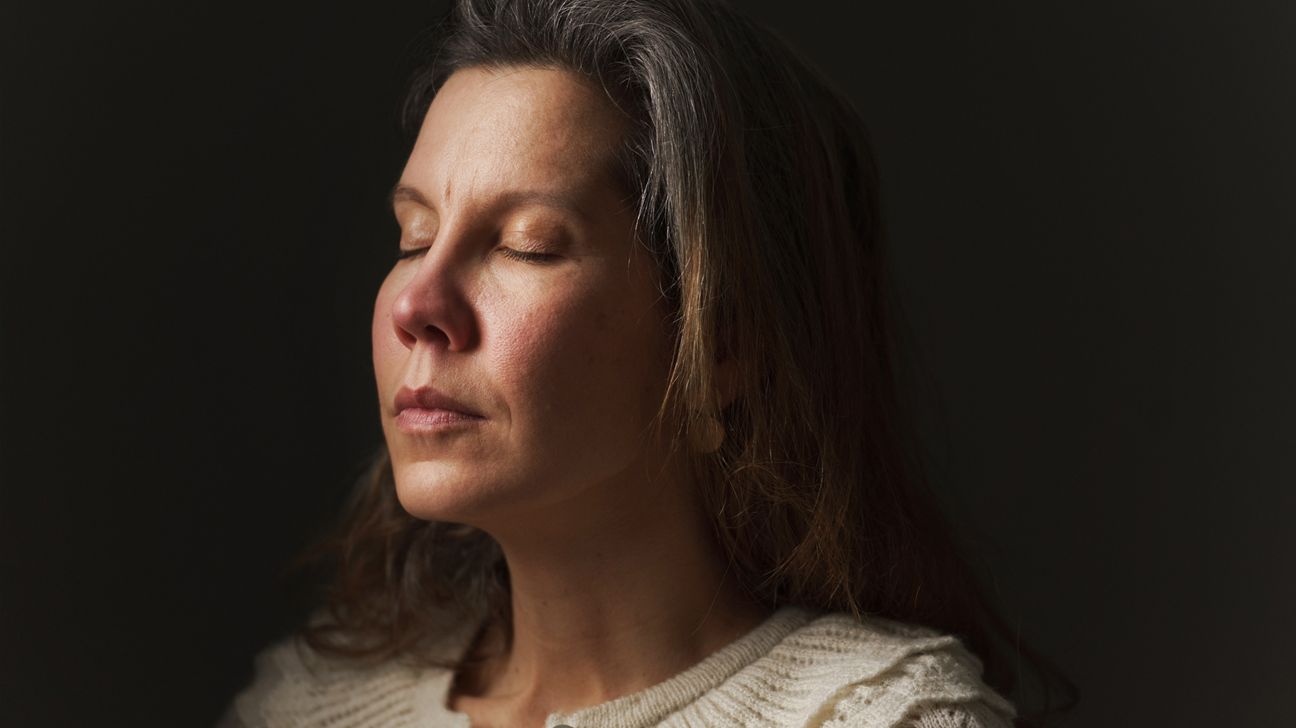6 Tips That Help Me Cope with Breast Cancer Survivor’s Guilt
July 28, 2021
Content created for the Bezzy community and sponsored by our partners. Learn More

Nadine Brandt/Stocksy United
Recovery and survivorship are complicated, but every day it gets easier.
After facing breast cancer in my 20s, I am grateful to be alive — but I’m also grieving the loved ones I’ve lost to this disease.
It’s impossible to understand why I survived when they didn’t, and the thought makes me feel angry, sad, and even embarrassed.
Survivor’s guilt can present itself in a variety of ways. Some people experience flashbacks and anxiety when reminded of someone they’ve lost. Others experience a constant feeling of guilt that seems to invade daily life.
For me, survivor’s guilt appears during major milestones when I remember the people who should be there next to me. Guilt resurfaces during particularly joyous moments, catching me off guard like a slap in the face.
How do we cope with guilt and embrace life after survival? I want to share six coping mechanisms that have helped me since my breast cancer diagnosis 6 years ago.


1. Feel all the feelings
The more we suppress or ignore our emotions, the more control they have over us. Addressing your feelings directly can open the door to self-acceptance.
It’s OK to feel grief, fear, and sadness alongside guilt for surviving a shared traumatic experience.
This can sometimes feel overwhelming. If you find yourself flooded with emotion, take a moment to pause and breathe.
Often, especially when processing trauma, it can feel safer to feel your difficult feelings in the presence of a licensed mental health professional.
2. Seek help
Grief and guilt can often feel overwhelming, and it’s important to seek help if you’re struggling.
Speaking to a mental health professional has been essential for me while I navigate survivorship. When I lose another loved one to cancer, I lean on my family and therapist for support.
Finding a therapist who specializes in working with people living with cancer and those who have recovered from it can be especially helpful. Your treatment team or a local breast cancer advocacy organization can likely point you in the direction of a therapist who understands the intricacies of living with breast cancer.
In addition to seeking professional help, talking to other survivors who know what you’re going through can help. Support groups, like the Bezzy BC peer-support community, are a great place to connect with other people who can relate.
3. Put yourself in their shoes
As a survivor, it’s easy to tell yourself a false narrative, like believing the person you lost wouldn’t want you to carry on without them.
I find it helpful to consider how I would feel if our roles were reversed. I would want them to find joy, fulfill their dreams, and remember me. Try to reframe your thoughts by imagining what you would want for them.
4. Practice mindfulness
Mindfulness techniques, like meditation, can help ground your thinking in the present. When you notice feelings of guilt and grief, try a guided meditation or write in a journal.
I try to focus on self-compassion and acceptance during my mindfulness practice. It helps me cope with the self-judgement associated with survivor’s guilt.
While mindfulness has been a valuable tool in my own coping, it’s important to keep in mind that it’s a practice and doesn’t always work quickly.
And it may not be for everyone. For example, one 2019 survey of 1,232 regular meditators found that 25 percent had unpleasant meditation-related experiences, including increased anxiety, fear, and distorted emotions or thoughts.
5. Reframe the ‘if only’
After losing someone, it’s common to reflect on the past with a sense of regret. It’s easy to think, “If only I had called more; if only I had gone back; if only I had…”
In reality, we didn’t have control. We did our best — and that’s enough.
Try this:
Write down your “if only” thoughts and reframe them as statements of what you did do. For example, turn “if only I had called more to check in” to “I am so glad I was present during the final days to show her my love.”
6. Do something kind for someone else
If you’re struggling with survivor’s guilt, it means you’re empathetic and kind. While you can’t change the past, you can repurpose your guilt into acts of kindness.
I feel fulfilled when I give back to the breast cancer community, and it helps me process life after the trauma of cancer.
Giving your time or expertise to a relevant organization can help you honor those you’ve lost while gaining a sense of direction in your life.
You’re not alone
No matter when or how you experience survivor’s guilt, know that you’re not alone.
It’s completely natural to feel grief and guilt after a life threatening experience that not everyone survived. You’re not supposed to suddenly wake up overjoyed because you survived.
Recovery and survivorship are complicated, but every day it gets easier. Give yourself time to process and heal.
When you’re ready, try these coping mechanisms for facing survivor’s guilt. Remember, your loved ones didn’t die because you lived.
Instead of punishing yourself, reframe guilt as a gift. You have the opportunity to do so much good with the life you have ahead of you.
Article originally appeared on July 28, 2021 on Bezzy’s sister site, Healthline. Last medically reviewed on July 27, 2021.
Medically reviewed on July 28, 2021
1 Source


Like the story? React, bookmark, or share below:
Have thoughts or suggestions about this article? Email us at article-feedback@bezzy.com.
About the author